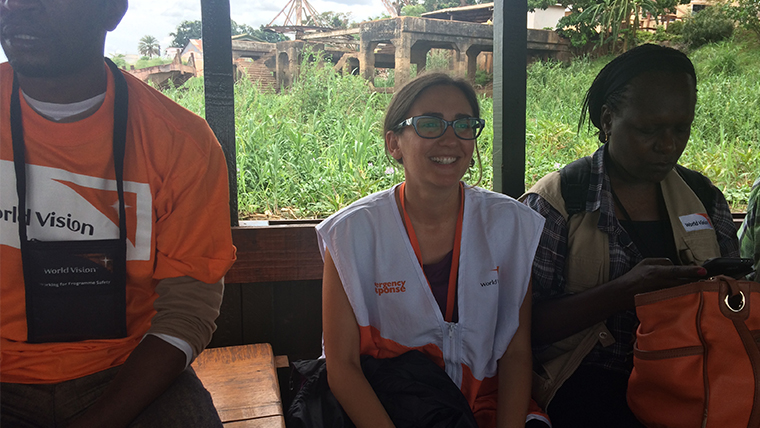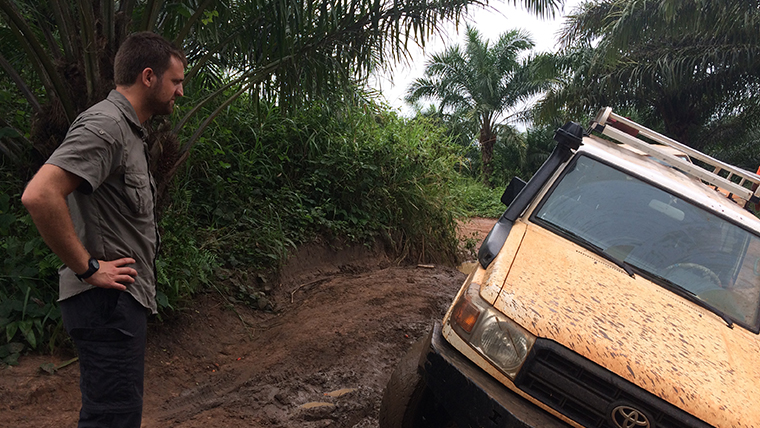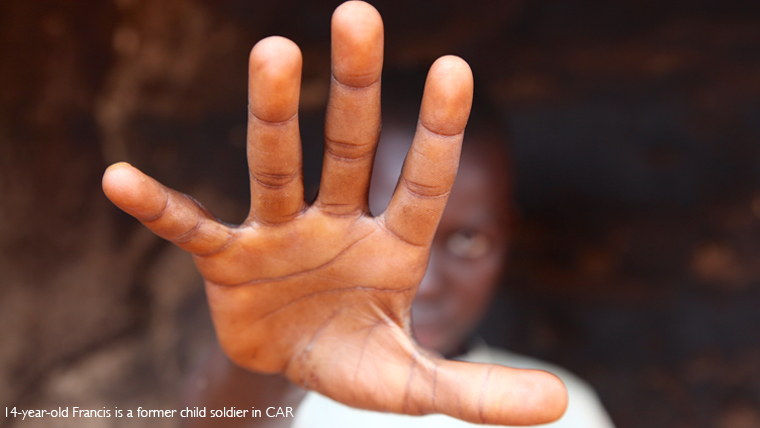Central African Republic Crisis - summary
- The current crisis in the Central African Republic (CAR) began more than four years ago in December 2012 with a political crisis which developed into violent conflict.
- In the country ranked 187 out of 188 on the UNDP's Human Development Index, this quickly became a humanitarian crisis.
- There have been serious violations of human rights, including kidnapping, murder, child recruitment into rebel armed forces and sexual violence.
- The situation remains extremely volatile.
Current situation
- Over 2.2 million people, (more than half the population) are now in need of life-saving assistance according to UN OCHA.
- Almost 20per cent of them have been forced from their homes, but are still in CAR (sometimes called internally displaced persons or IDPs).
- As of May 2017 the number of internally displaced people across CAR stands at over 426,000 and the number of refugees fleeing to neighbouring countries is 464,000.
- CAR continues to be 'a forgotten crisis'; only five per cent of the total humanitarian appeal is funded so far. With huge needs and challenges ahead, it's crucial for us to continue to keep those in the Central Africa Republic in our thoughts and prayers.
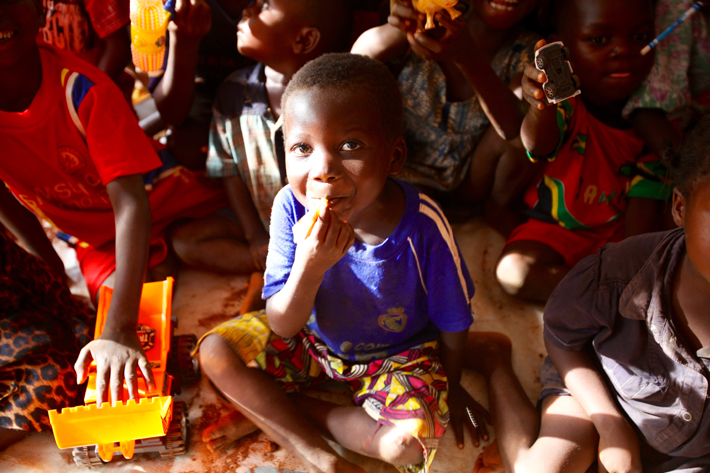
Give Now to our general emergency fund to help people in CAR and other countries.
Pray with us:
- Pray for an end to the violence between different groups and for communities to be able to live alongside each other.
- Pray for those who are displaced and living in poor conditions.
- Pray for protection for children from recruitment into armed groups and violence.
- Pray for humanitarians, including our own staff (in the capital Bangui and across the country) as they work in this unstable environment and seek to respond to the needs of those affected.
This is a children's emergency
Children are paying the price of violent conflict in CAR, deprived of their most basic rights to food, education, health and security. Many have been orphaned at an early age, conscripted into the warring forces or face long-term effects from experiencing violence. Children are being used by armed groups and subjected to sexual and gender-based violence; many are displaced, separated from their families and exposed to even greater risk of abuse and exploitation.
According to UNICEF over a third of children are out of school and between 6,000 and 10,000 children have been recruited into armed groups during the crisis. Additionally 41 per cent of children aged under-five are chronically malnourished. As the ongoing conflict has disrupted farming cycles, so children are likely to have less food to eat. The well-being of all the children affected by this crisis remains our priority.
Help to raise awareness of this 'forgotten crisis' (using the icons below)
How are we helping
We've been working in CAR since March 2014. As of March 2017 we've helped almost 291,000 people – more than 190,000 of them children - with life-saving interventions. Our teams in CAR are increasing their efforts to invest in communities for the long term to break the cycle of crisis and response.
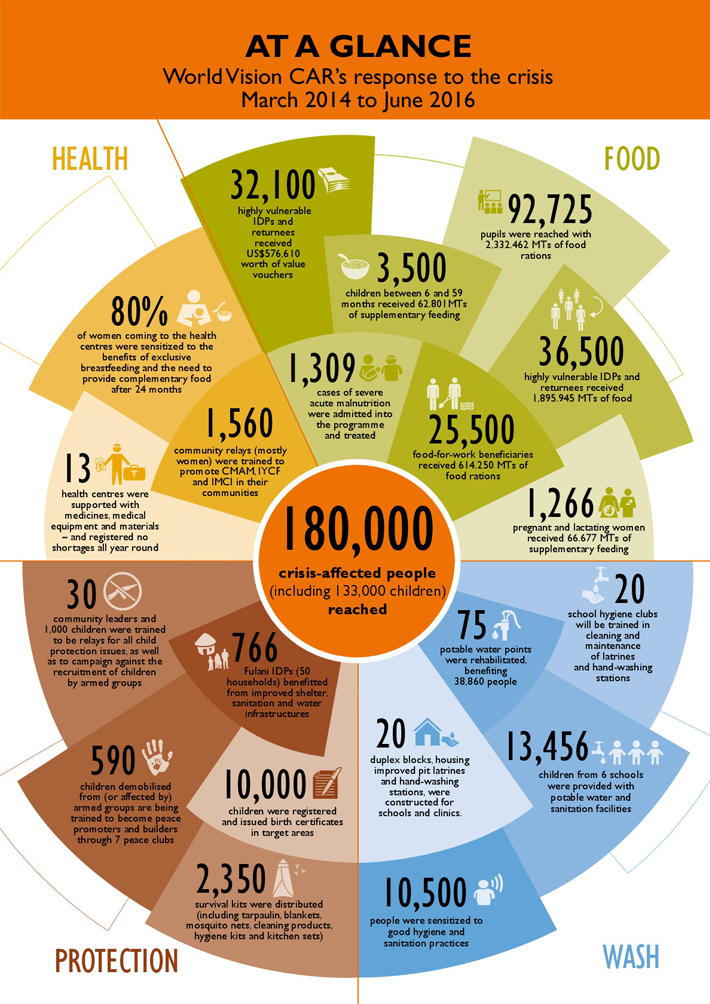
Our latest report on the situation:
Addressing Basic Needs
The Central African Republic is often characterised as a ‘forgotten crisis’. It doesn't make the headlines often but most people can't meet even their most basic needs. Communities are facing high levels of food insecurity as the violence has stopped a lot of farming. Internally displaced people are in need of better shelter, livelihood activities, clean water, child protection and psycho-social support.
- Over 100,000 people have received food and almost 93,000 children have been given school meals.
- 2,238 children (1,062 girls and 1,176 boys) have registered for activities at 12 Child Friendly Spaces - safe spaces for children to spend time, play and start to come to terms with what they’ve been through, where they can also get psychosocial counselling.
- 50 women have trained to lead discussions around human rights, citizenship and women’s participation in political activities.
- 535 women have formed savings groups and each received a Cassava mill and a peanut mill for income generation.
- 90 water points have been built or repaired, giving over 38,860 people access to safe drinking water.
- 13,456 school children can now access safe, clean, water and sanitation facilities.
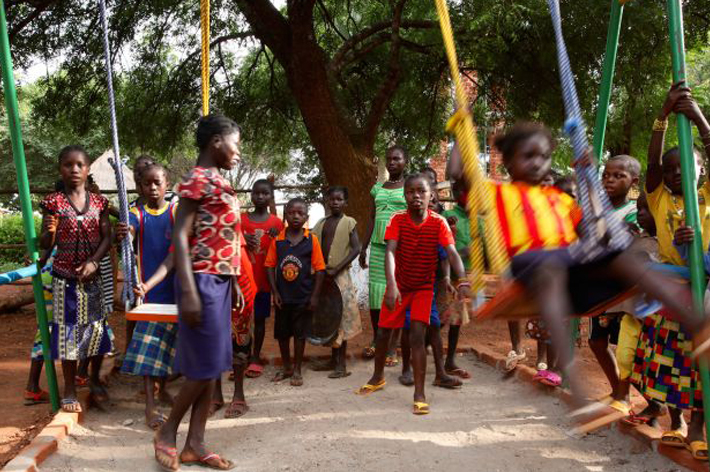
In 2016, 50 street children in the capital, Bangui were given basic support and help to make an income. You can help children like these.
Working for the future
Long-term projects are the best way to meet children's needs in CAR - and to ensure a better future for them. For example, long-term psychosocial support for those affected by traumatic events and livelihood programmes to help local economies recover.
- 3,500 children associated with armed groups or orphaned by the conflict are receiving psychosocial support through our peace clubs.
- We've helped to identify children separated from their families. Where parents or relatives are still in CAR, we're working urgently to reunite children with their families.
- 10,000 children have been registered and issued with birth certificates, protecting their rights.
Building Sustainable Peace
In the political struggle for power, religion has been used to divide people across the country. For children to have a better future, trust must be built across different faith groups. We're supporting a platform of local faith leaders which has already brought peace to some previously-divided Christian and Muslim communities. 100 young people have taken part in an interfaith dialogue for peace. These interfaith platforms should continue to be supported by the international community so that they can build sustainable peace, putting the voices and needs of local communities, including children, at their centre.
Moving Forward
We'll continue to support and participate in programmes, to speak out against all forms of violence against children in CAR, and particularly to promote the demobilisation and reintegration of child soldiers.
